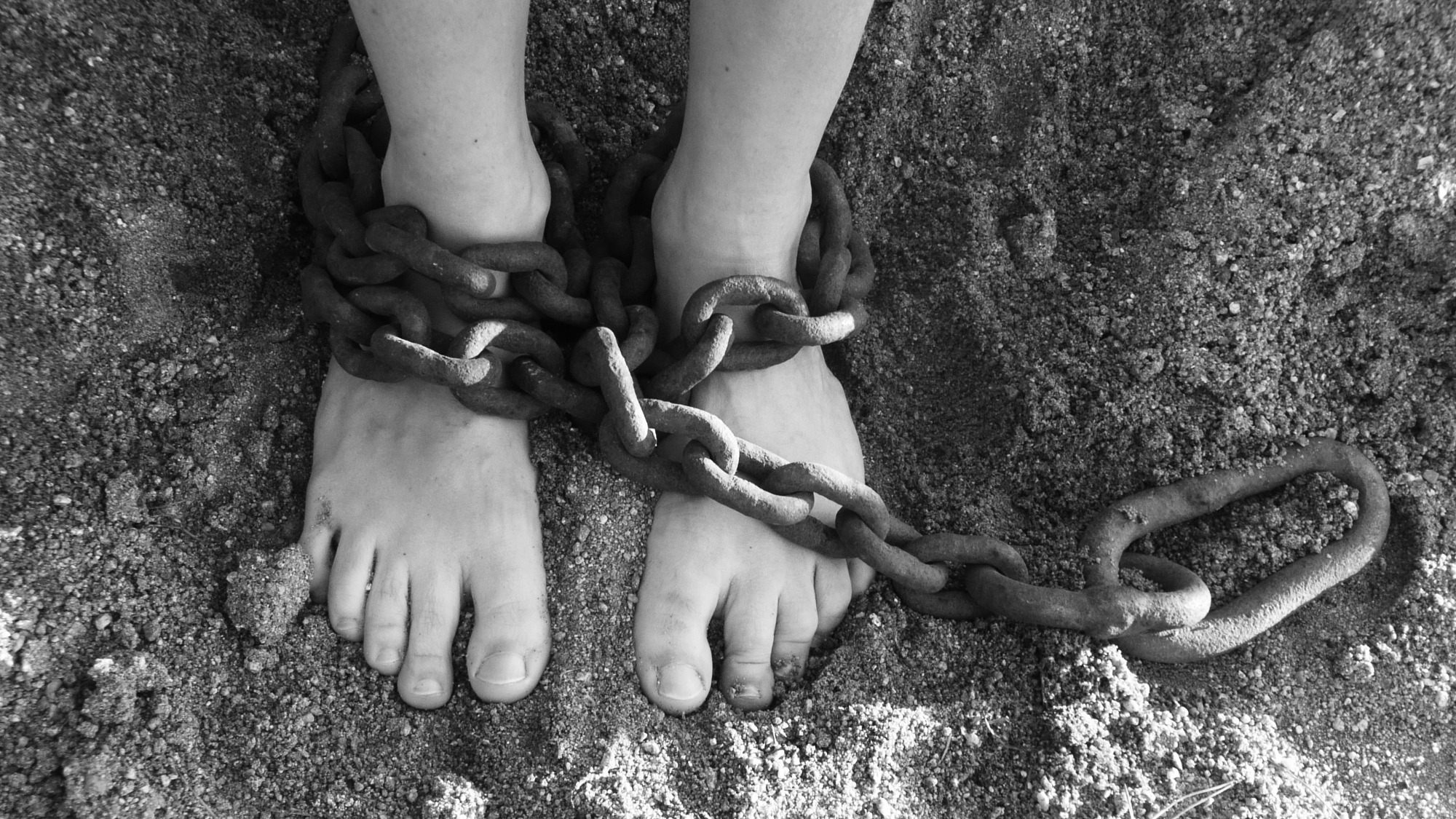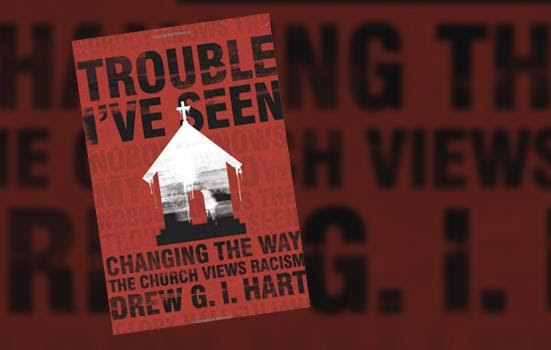Sadness and Anger: Loving the Oppressed and the Oppressor
I find that there’s a tension between sadness and anger. Is there an appropriate time to be angry? Are there ways to love without sadness? How do sadness and anger fit into being a Spirit-filled disciple of Christ who leans into God for all things and finds strength and joy in the Lord and rejoices in suffering?
I don’t know all the answers, but here's what I've realized: when we’re angry we tend to focus more on oppressors, offenders, and enemies than we do on the oppressed and those who are being wronged.
Justifying Our Anger
We often use our anger as a way to motivate us to action, but what I see in the world is that anger often causes the situation to deteriorate quickly into an ignorant war between us and them, between this group and that group. It inevitably stops being about the people who are suffering and becomes about us or an agenda or about the people who are causing the suffering. I've gone back and forth with myself about whether or not that's a good thing, and I believe that it isn’t.On the one hand, if we’re focused on the people who are causing the suffering, and if we’re angry about it, then we may be motivated to do something about it. We’re keeping our eyes fixed on the problem — that is, on the people who are causing the suffering. Doesn't that give us focus? Isn't that how we stay focused on the problem at hand — root it out from the source?
I'm not so sure that's how it works. I'm not so sure that we can ever really put an end to suffering or to the existence of oppressors. Perhaps in extreme cases where tyrants have overstepped, like Hitler and the Holocaust, we may feel justification for our anger and for focusing on the oppressor as a problem to be dealt with. We may reason that there’s something to be said for not losing sight of where the problem begins, but I think this is a misnomer.
Problems don't really begin with individuals, and they certainly don't end with them. Hitler may have been a problem and a source of other problems, and stopping Hitler may have brought the Nazi regime to a grinding halt as a national and global presence, but it certainly didn't stop the Nazis. Even today, we have neo-Nazis who have taken up some of the harshest parts of the Nazi regime and assimilated them into their world views. Our anger and our focus on Hitler didn't really address the problem and I'm not sure that the root of these sorts of issues of oppression and disenfranchisement can be addressed when we focus on people as the source. I think it feels right and sounds right because we are empowered by our anger.
Moreover, when we war with people with whom we are angry, we feel some kind of gratification. We may even feel justified by the battle itself. The anger that boils over into aggression, turns into retaliation, and spurs on a reciprocal battle. It self-justifies because of the aggression of the other. Our anger begets anger, our aggression begets aggression, and then we say to ourselves that we were right all along about our enemies.
Blinded by Anger
More often than not, aggression causes us to focus so heavily on the oppressor that we lose sight of the oppressed. Our anger blinds us not only to the humanity of our enemy but to the sometimes desperate reality and painful situation of those we claim to defend. We begin to pour more time, energy, and other resources into opposing people or groups than into helping those who are hurting.This anger-blindness, this fixation on the oppressor to the detriment of the oppressed, interferes with our ability to love both the oppressed and the oppressor.
Hardened by Anger, Steeled for Battle
Anger also hardens our hearts. Anger tends to become a defense against the pain that comes with suffering and the pain that comes through empathy. It’s a common trope in stories that in order to overcome suffering, oppression, and limitations, one should tap into an immense anger bottled up inside. That anger can override our limitations and spur us on to new heights, new levels of power.Look at shows like Stranger Things, where Eleven's powers are not most amplified and controlled by will or practice or concentration but by anger. When she wants to defend her friends, she doesn't think of them but instead thinks of her enemies and the ways that her enemies have caused her and her friends a great deal of harm. It’s not her friends that empower her abilities; it’s her anger toward her enemies that empowers her abilities.
Similarly, those who opposed Jesus and the apostles often leaned into anger to inspire and persuade others. The mob before Pontius Pilate or the mob in Ephesus, for example. It was power through violence, and their hearts were hard. There’s a sort of balance we think we can achieve by incorporating anger as an emotional motivation, and we tend to promote the idea that if we leave anger out we have somehow done ourselves a disservice.
Can Power Be Achieved Without Anger?
This is the question the disciples struggled with after the crucifixion. If Jesus was the Messiah and Jesus is dead, is God’s love really powerful enough to conquer the anger- and violence-fueld power of the world? Thus, the statement on the road to Emmaus that they had hoped he would be the one...When I experience anger, I feel this tension, because I see in myself the temptation to say that anger truly would empower me to overcome the obstacles placed before me — a righteous fuel to steel me for battle.
Sadness in Love
When we open our hearts in love, we inevitably encounter sadness. Our hearts begin to break for those who are broken. We suffer with the suffering and weep for those who weep, because we feel what they feel. Empathy always eventually returns to sadness.As I mentioned, it’s tempting to lean into anger to shield ourselves from the pain of empathy and love. We limit who we love by justifying our hatred by our anger, which minimizes our immediate pain. God, however, regrets the anger of the flood and, rather than bolstering the heart with anger, empties Godself to become Jesus. God struggles through the pain and anger of life and fixes Jesus’s vision firmly on the oppressed and the suffering. Jesus brings healing and reconciliation, and at the end of all things, suffers death on a cross to lay to rest the question, once and for all: true power, the power that conquers death, lays-to-rest anger in favor of grace.
Wearied by Sadness
Unfortunately, sadness often leaves me feeling weary. I become so exhausted that I can't force myself to stay awake anymore. My heart aches so much that I can’t focus on the task at hand.This may be debilitating in a lot of ways, and it’s certainly not productive for the workplace. It’s tempting to consider this an obstacle to progress. Nevertheless, I’ve noticed that when I let that kind of deep sadness into my heart, my thoughts inevitably settle on the oppressed. I become unable to focus on my work, because I can't stop thinking about the victim(s).
These things often go hand-in-hand: a focus on the oppressed, empathy with their suffering, and weariness because of sadness. Weariness is my litmus test for empathy, and empathy for the oppressed is more like Jesus than anger toward the oppressor.
Softened by Sadness
Unlike anger, sadness softens the heart. I believe compassion begins with empathy, and empathy leaves room for sadness — to mourn with those who mourn. Sadness, then, becomes a practice of empathy and compassion. If we can keep the sadness from turning into bitterness and then into anger, we are reminded that we are human and that those people who are suffering are human. It becomes increasingly difficult to deny that our enemies, too, are human.Conversely, if we don't embrace the pain that comes with empathy, love, and compassion, how can we love our enemies and pray for them in appropriate ways? If, rather than empathy, we fill ourselves with anger, how can we pray like Jesus and Stephen: Lord, forgive them?
An Angry God
There's a problem here — a sort of hiccup. Jesus gets angry in scripture, and so does the Father, so let me clarify: I don't think that anger is bad. I don't think that anger can ever truly be done away with. I don't think we’ll ever be able to stop ourselves from feeling anger, and I don't know that we should. This isn’t about ceasing to feel anger but about learning to let go of anger for the oppressor in favor of sadness with the oppressed. If we can’t learn to be angry without losing sight of the people who are suffering — if we can’t learn to be angry without losing our love for our enemies — then I would rather be sad than angry. I would rather hurt the deep hurt of sadness for the sake of mingling with others in the deep pain and desires of love.So what about God’s anger? Does God choose sadness over anger?
I think that's precisely what Jesus is in the Godhead. I think Jesus’s death on the cross, his crying out to the father, and then his request for the forgiveness of his enemies is the place where God's anger yields to the deep sadness of love. Jesus is God’s answer to God’s own anger, He’s the culmination of God’s mission to bring to the table that which is wholly other, even if it costs everything. For that, God is willing to mourn with the world and all of creation.
Photo by Tom Pumford on Unsplash




Comments
Post a Comment